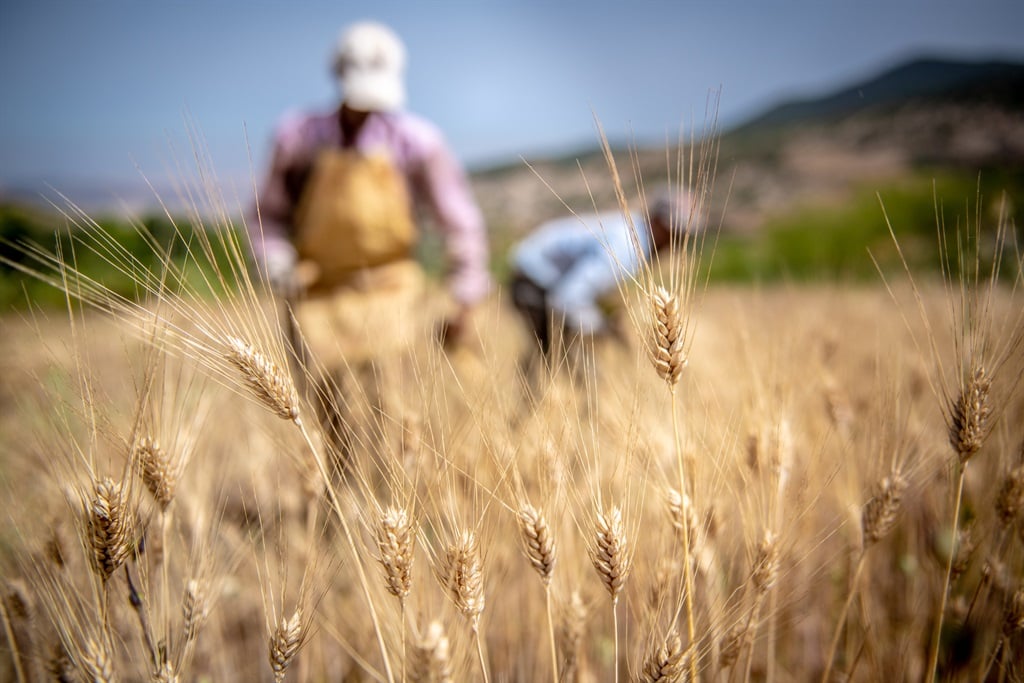Wandile Sihlobo | Zelensky is in SA this week. Why wheat should be on the agenda

Wandile Sihlobo explains why there is room for a deeper conversation about how South Africa could import more wheat from Ukraine.
- For more financial news, go to the News24 Business front page.
We will have our Ukrainian friends in Pretoria this week. A range of geopolitical matters will undoubtedly be the primary focus of the leadership of both countries during this working visit by the president of Ukraine.
However, there will be business engagements on the sidelines or days leading up to the visit. The Ukrainian president Volodymyr Zelensky may visit South Africa accompanied by senior government officials from the economic sector. Such conversations may be about forming connections to support Ukraine as it navigates the war and explores long-term business opportunities in the post-war world, whenever that day comes.
We already see some countries, such as the United States, exploring potential commercial interests in Ukraine through a possible agreement on developing Ukraine's mineral resources.
Of course, South Africa should be under no pressure to explore such ambitious commercial interests with Ukraine like the United States. However, the question that may arise is whether there are potential long-term agricultural trade relations that our countries could establish in the future.
Both Ukraine and South Africa are net exporters of agricultural products. Ukraine's agricultural exports are approximately $21 billion (R395 billion) per year, according to data from Trade Map. These exports are mainly comprised of sunflower oil, maize, wheat, canola, soybeans, poultry products, barley, and sugar, among other products. China, India, the Netherlands, Egypt, Turkey, Spain, Poland, Germany, Indonesia, Italy, and Saudi Arabia are among Ukraine's key agricultural export markets.
South Africa does not feature prominently. It ranks as the 93rd largest agricultural market for Ukraine. This marginal import from Ukraine is understandable, as South Africa is generally a farming powerhouse, boasting an agricultural trade surplus of $6.2 billion in 2024.
Importantly, when one examines South Africa's agricultural import basket of $7.6 billion in 2024, the dominant products are wheat, palm oil, rice, poultry, and whiskies. (South Africa's agricultural exports were valued at $13.7 billion - R258 billion - in 2024). This composition of South Africa's agricultural imports partly explains why the country would not feature prominently on Ukraine's agricultural import list.
Still, there is room for a deeper conversation about how South Africa could import more wheat from Ukraine, provided the quality and price are acceptable to private businesses.
South Africa imports about half of its annual wheat consumption, about 1.8 million tonnes. Ukraine is not a prominent key wheat supplier in South Africa.
For example, in the 2024-25 marketing year, South Africa imported about 904 344 tonnes of wheat at the end of the first week of April 2025. The seasonal import forecast is 1.80 million tonnes. So far, the largest wheat suppliers by share are Russia (with 41% share), Lithuania (22%), Poland (10%), Latvia (9%), Australia (7%), Canada (6%) and Romania (5%).
Of course, these are private dealings, as the South African government correctly refrains from intervening in food markets. It is for this reason, then, that at the sidelines of government meetings, Ukrainian officials, amongst other things, may have to engage with South African businesses so that, post-war, they too can feature prominently on South Africa's wheat import lists.
Among the other agricultural products South Africa imports, Ukraine may have limited room to supply, as these are not among its key export products.
From a South African perspective, the Ukrainian agricultural imports list includes a few products that South Africa also exports. For example, Ukraine spends about $5.5 billion annually on agricultural products. These are mainly spirits, citrus, coffee, tobacco, cheese, wine, banana, chocolate, and palm oil, amongst other products.
The countries that primarily supply these products to Ukraine include Poland, Italy, Germany, Turkey, the Netherlands, China, Spain, France, the United States, the United Kingdom, and Hungary.
While a major producer and exporter of citrus and wine, South Africa isn't the primary supplier of these products to Ukraine. These are the key products that could be worth mentioning in the future.
Aside from these, limited business-to-business interactions in agriculture may be key, except to express support for Ukraine as it navigates a challenging time of protracted war.
Newsletter
Daily
SA Money Daily
The biggest business, economic and market news of the day.
Wandile Sihlobo is the chief economist of the Agricultural Business Chamber of South Africa (Agbiz) and author of three books. His latest book is “The Uncomfortable Truth About South Africa’s Agriculture”.
News24 encourages freedom of speech and the expression of diverse views. The views of columnists published on News24 are therefore their own and do not necessarily represent the views of News24.
Discover the Truth
Step into a world where the truth shines bright, and every headline is worth your time. With News24, you're not just reading the news; you are part of a community that values knowledge and insight. Immerse yourself in compelling stories, sharp analyses, and content that keeps you ahead of the curve.
